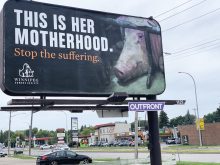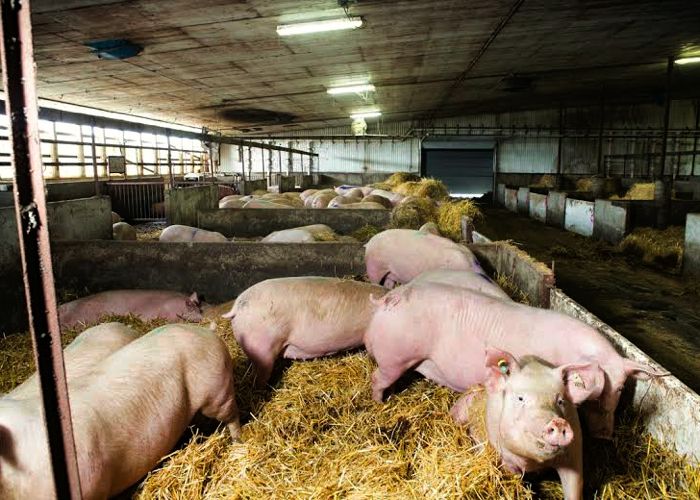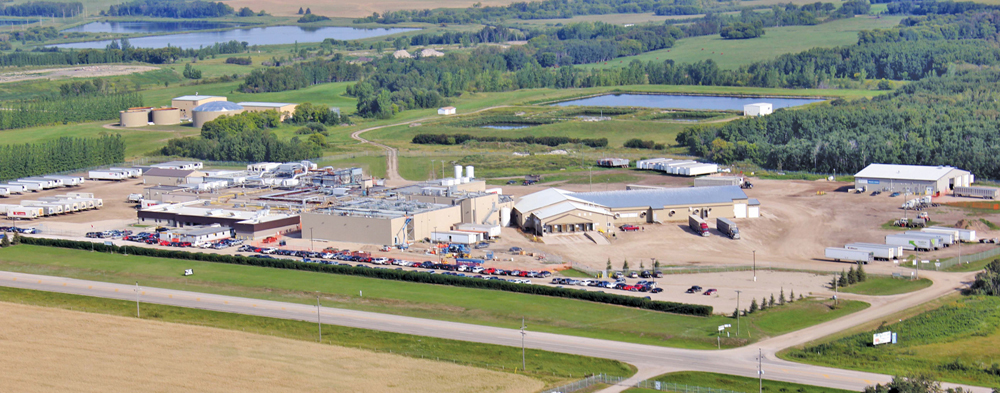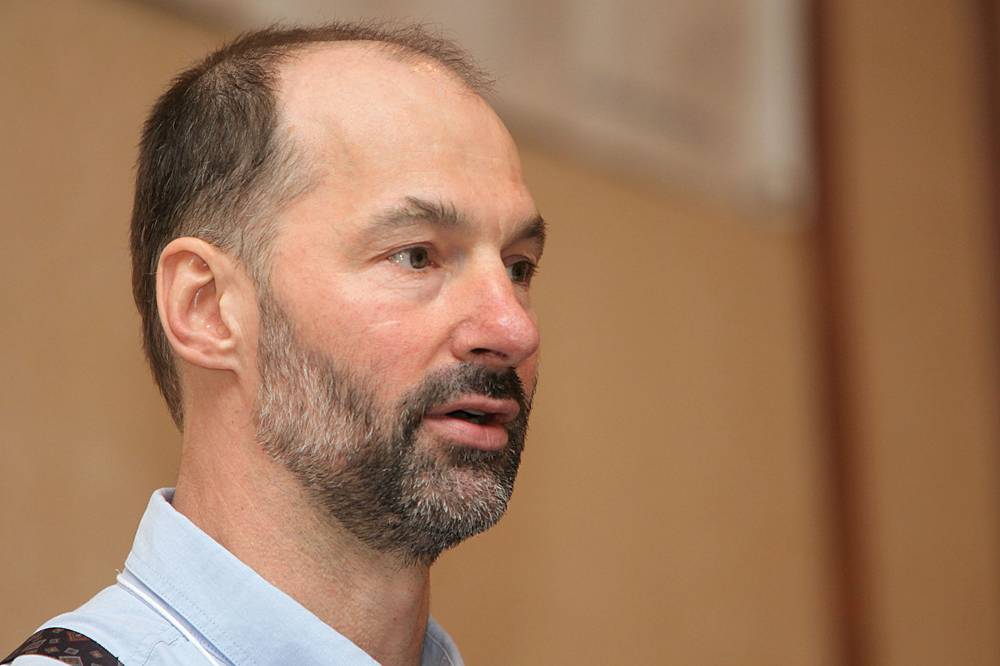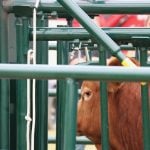“I’m getting just over $200 per pig. I should be happy.”
– IAN SMITH
It seems the more the “big” hog farmers hurt, the wider the grin on Ian Smith’s face stretches.
Thanks to his carefully nurtured, direct-marketing strategy, the operator of Argyle-based Natural Raised Pork is still getting good prices for 75 to 80 per cent of his total production of five to seven hogs per week.
“I’m getting just over $200 per pig. I should be happy,” he said with a laugh.
Read Also
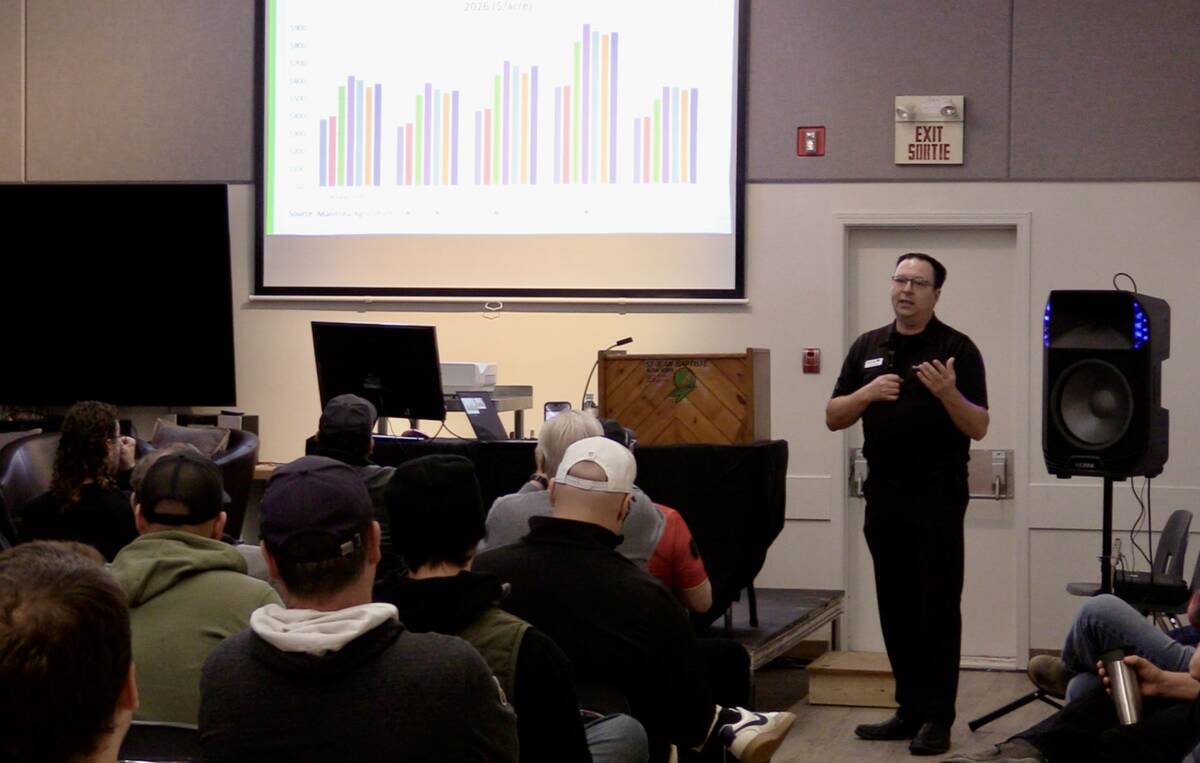
VIDEO: Farmer inflation double that of other Canadians
Darren Bond with Manitoba Agriculture says farm inflation is hitting Manitoba producers as high as 50 per cent over the past five years.
On the other hand, he’s still getting a taste of what the rest of the hog industry is suffering.
His excess hog production, currently about 25 per cent of total, gets sold to a local processor for the same price as the open market.
His latest sales through that channel ended up being $90 per pig, even though the hogs were at the top of the quality index.
Large-scale hog producers are suffering from low prices, high feed costs, country-of-origin labelling legislation in the United States, H1N1, and the high Canadian dollar. Many are going broke.
But all the bad news has had an upside for this humble entrepreneur’s business.
Ironically, the storm of media attention surrounding the plight of the hog industry has resulted in a raft of reporters beating a path to his doorstep.
In recent weeks he’s been interviewed on CBC radio’s morning show, and in the past has been featured on local TV, newspapers and magazines. That has amounted to a small fortune in free advertising for his pork products, and a new clutch of free content that he has put on his website, www.naturalpork.ca.
The media always wants to know how he has managed to build a successful business in the past five years amid such dark times. But Smith says that they should be asking instead why the people on his 300-strong customer list choose to pay extra for his pork, which is raised on a quarter section farm the old-fashioned way.
“I think I’m maybe cheaper or equal, but a lot of people are not concerned about the price. They ask, of course, but they are repeat customers because of the quality of the product and the service that I deliver for them,” he said. “For me, I’m making not just a customer, but also a friend.”
Smith’s farm sells Winnipeg Humane Society-certified meat from 200-odd Yorkshire-Landrace hogs raised on clover-barley feed on his farrow-to-finish, free-run, straw-based operation using the same practices as they did back in 1967, when their farm switched from dairy to hogs.
He blames the current problems in the hog industry on chronic overproduction over the past decade, which saw small farmers squeezed out in favour of ever-larger operations. Instead of giving up like so many others, Smith turned to direct marketing and is now reaping the benefits.
“They kept saying we’ve got to get bigger and bigger,” he said, adding that he took a lot of flak over the years for staying small.
He recal led once being mocked by a larger producer for dropping off just five hogs at the sale yard in Winnipeg.
“A Hutterite guy with about 40 to 50 hogs came over and said to me, ‘Is this all the pigs you’ve got?’ I said, ‘Yes.’ Then he started laughing at me,” Smith recalled.
“I looked at him and said, ‘Yeah, but these are paid for, and yours aren’t.’ He walked away, but he knew I was right.” [email protected]
LOWERING FEED COSTS: Ian Smith, photographed on his farm in 2004, was
one of the first farmers in Manitoba to begin working with green manure crops.
The approach has proven to be a low-cost way to increase fertility and assist
with managing excess moisture on his small Argyle-area hog farm.


